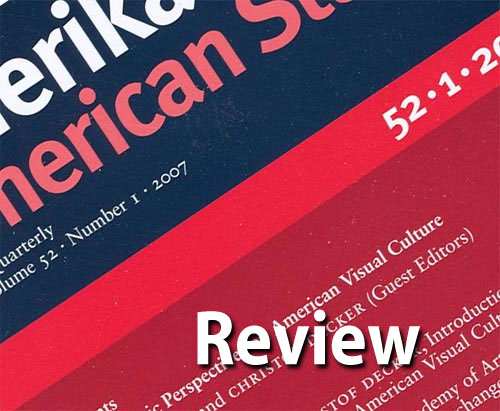Laura Bieger, Ramón Saldívar and Johannes Voelz, eds., The Imaginary and its Worlds: American Studies after the Transnational Turn (Hanover, NH: Dartmouth College P, 2013), 312 pp. Amerikastudien/ American Studies, 61.2 The collection of papers in The Imaginary and its Worlds was developed out of a conference hosted at the John-F-Kennedy-Institut of the Freie…
Read MoreWinfried Fluck, Donald E. Pease, and John Carlos Rowe, eds., Re-Framing the Transnational Turn in American Studies (Hanover: Dartmouth College P, 2011), 460 pp. Amerikastudien/ American Studies, 61.2 The late 2000s and early 2010s saw a considerable number of monographs and edited collections reconsidering the nexus of transnational and global American studies. Coming out…
Read MoreHartmut Lutz, Contemporary Achievements: Contextualizing Canadian Aboriginal Literatures (Augsburg: Wißner, 2015), 334 pp. Amerikastudien/ American Studies, 61.2 The front cover of this outstanding collection shows a beadwork turtle designed by Anette Brauer with Canada’s national symbol, the maple leaf, on its back. The animal here echoes Turtle Island, a term used by many native…
Read MoreOliver Scheiding and Martin Seidl, eds., Worlding America: A Transnational Anthology of Short Narratives before 1800 (Stanford: Stanford UP, 2015), 245 pp. Amerikastudien/ American Studies, 61.2 Anthologies are by nature provocative: the chosen selections will always impress some and dismay others, and, by prioritizing certain writers and values, editors make literary and political statements.…
Read More
